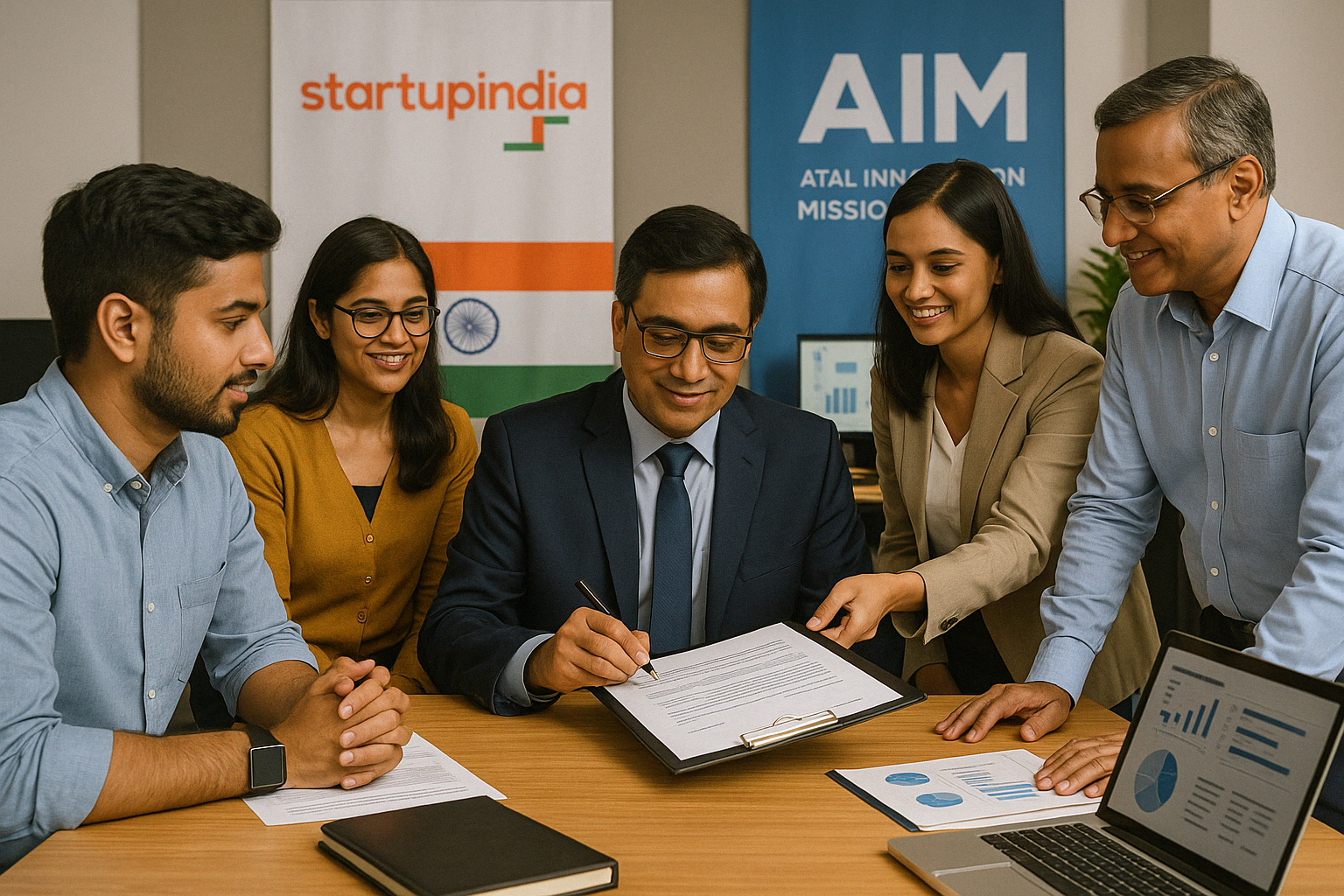Summary Points
- India’s institutional incubators rely heavily on government funding to support startups, infrastructure, and mentorship programs.
- Schemes like Startup India Seed Fund, DST-NIDHI, BIRAC-BioNEST, and Atal Innovation Mission are key funding sources.
- Funding is used for prototype development, incubation infrastructure, pre-seed grants, and training.
- Incubators are navigating complex proposal processes, documentation requirements, and reporting mechanisms.
- State-level innovation councils are emerging as parallel support systems.
- Access to government funding is reshaping how colleges and universities contribute to India’s innovation economy.
In classrooms once dedicated to theory, something else is taking root—startups. Behind many of them is a quiet but critical engine: government-backed institutional incubators.
These incubators, often housed within colleges and universities, are not just coaching students—they’re competing for and managing lakhs of rupees in public funding to nurture India’s innovation economy.
Why Government Funding Matters
Institutional incubators are often non-profit setups. Unlike private incubators or accelerators, they depend on external support to:
- Offer grants to startups
- Build infrastructure like labs and coworking spaces
- Hire incubation managers and mentor panels
- Conduct workshops, bootcamps, and demo days
- Support IP filings and product validations
Most of this comes from public funds provided through central and state schemes.
ALSO READ: Not Just Degrees—Colleges in India Are Now Producing Startups
National-Level Funding Schemes Supporting Incubators
1. Startup India Seed Fund Scheme (SISFS)
- Offers grants up to Rs 5 crore per incubator
- Provides Rs 20 lakh for prototype development
- Gives Rs 50 lakh in convertible debt for market-ready startups
- Covers operational and mentor-related costs
- Requires application through the Startup India portal with a review by a selection committee
Many institutions use this as core capital to support 10–25 startups per year.
2. Atal Innovation Mission (AIM – NITI Aayog)
- Funds Atal Incubation Centres (AICs) inside institutions
- Offers Rs 10 crore over five years in installments
- Supports deep-tech, agri-tech, and social impact startups
- Requires an operational plan, faculty engagement model, and ecosystem outreach
AIM is one of the most prestigious grants for incubators in India.
3. DST-NIDHI (National Initiative for Developing and Harnessing Innovations)
- Offers support under PRAYAS, SSS, and EiR sub-schemes
- PRAYAS provides Rs 10 lakh per startup for prototyping
- Entrepreneur-in-Residence (EiR) gives Rs 30,000–Rs 35,000 per month to early-stage entrepreneurs
- Incubators receive project-based support and are expected to match performance metrics
This is widely used in engineering colleges and tech-focused campuses.
ALSO READ: From Metros to Mandis: The New Face of Startup Incubation in India
4. BIRAC BioNEST (for Biotech and Life Sciences)
- Targets biotech incubators inside institutions
- Offers capital for lab setup and product trials
- Focuses on healthcare, diagnostics, agribiotech, and medtech
- Co-funds with state governments or CSR support where applicable
This is the go-to scheme for medical colleges and bioscience institutes.
What the Funding Covers
Most incubators use government grants to:
- Build or upgrade incubation spaces
- Procure lab equipment and tools (3D printers, testing rigs)
- Provide Rs 2–10 lakh per startup for proof-of-concept
- Host business development programs
- Run hackathons, pitching events, and IP clinics
Institutes are encouraged to use local procurement and co-funding from alumni or industry.
How Institutions Access These Funds
Accessing public money requires diligence. The process usually involves:
-
Proposal Submission
- Detailed technical and financial plan
- Letters of support from faculty, founders, and industry
-
Due Diligence by Authorities
- On-site visits
- Capacity checks
- Legal documentation
-
Funding Approval
- Time-bound release (installments linked to progress)
-
Monitoring and Reporting
- Quarterly utilization reports
- Startup impact data (jobs created, IP filed, revenue generated)
This administrative load often requires incubators to have a full-time program manager or grant coordinator.
Role of State Governments and Innovation Councils
Some states are now complementing central schemes:
- StartIn UP (Uttar Pradesh) offers Rs 15 lakh to incubators per startup
- Kerala Startup Mission (KSUM) co-funds up to Rs 25 lakh for labs
- Startup Odisha, Startup Telangana, and Startup Gujarat provide operational support, mentor networks, and founder stipends
This helps institutions plug funding gaps and align incubation with local economic goals.
Examples from Across India
- AIC-Banasthali Vidyapith runs with AIM and BIRAC support, promoting women entrepreneurs in rural Rajasthan.
- SINE at IIT-Bombay leverages multiple grants to create a hybrid seed-to-scale model.
Challenges in Accessing Government Resources
Despite generous schemes, access remains unequal.
Common barriers include:
- Lack of proposal writing skills in smaller institutions
- Difficulty in post-funding reporting
- Limited knowledge of available schemes
- Delays in fund disbursal
- Overlap between central and state schemes causing confusion
Some incubators also struggle to meet fund utilization benchmarks.



